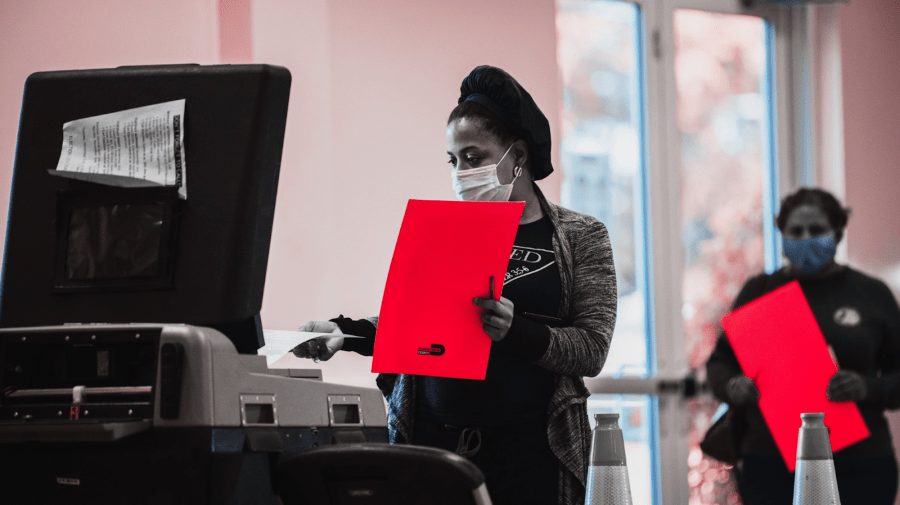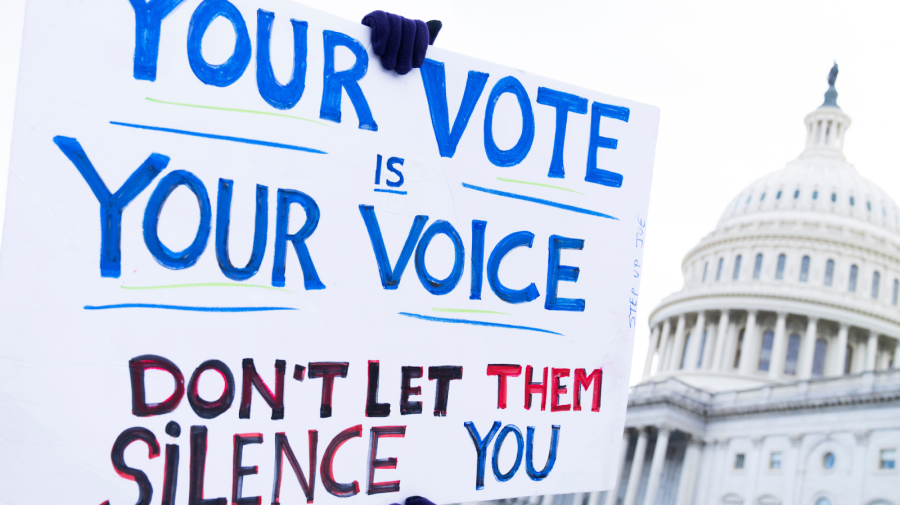Is It Easy to Find a Prostitute in Georgia Republic

The world of elections is changing, especially when it comes to the accessibility of polling places. In recent years, states that were once strongly aligned with one party are shifting, often due to the rise of minority voters. However, a key Supreme Court (SCOTUS) decision altered the landscape, leaving the door open to voting process changes that disproportionately harm minority voters. By examining the broader picture — as well as how polling districts in the state of Georgia have changed — the impact becomes clear.
The Impact of Shelby v. Holder
In 1965, the passage of the Voting Rights Act altered the election landscape. The law prevented states and local governments from passing laws that denied equal access to vote based on race. Additionally, it included a crucial provision, known as Section 5, that put additional requirements on jurisdictions with a history of discrimination.
For jurisdictions covered under Section 5, any proposed voting process changes were subject to federal oversight to ensure they didn't unfairly target minority voters. However, this provision was struck down by the Shelby v. Holder Supreme Court decision in 2013. Unless Congress updated the formula used to determine Section 5 eligibility, it could no longer apply. That move fundamentally altered the voting landscape once more, removing federal oversight from the areas previously subject to Section 5.
While the passage of discriminatory laws is still banned under the Voting Rights Act, a large swath of states and local governments could suddenly make changes to their processes without additional approvals. In some areas, that's manifested as the removal of polling places, restrictions on mail-in voting, new ID verification requirements, and other moves that disproportionately impact minority voters.
Shelby v. Holder gave multiple jurisdictions new control over their voting processes, including Georgia. Since the Supreme Court decision, changes have occurred quite rapidly. This is particularly true in the aftermath of the height of the COVID-19 pandemic. That is, the contentious 2020 election combined with the rise in mail-in voting and process alterations due to COVID-19 has caused many Republican politicians to look into more restrictive voting practices, even though claims of voter fraud has been largely debunked by leading researchers.
One prime example of a post-Shelby v. Holder change is Georgia's Election Integrity Act of 2021. Along with additional restrictions on absentee voting — including ID requirements, fewer drop boxes and stricter cutoffs — the law alters the duration of voting times each day during the early-voting period; it also makes handing out food or water to those waiting in line illegal. Further, the results of the election must be certified the Monday after Election Day, giving officials four fewer days to count ballots.
Many local jurisdictions are also working to close polling places, at times en masse, thus decreasing the accessibility of voting. In places where polling places were diminished, which typically occurs in areas where the majority of the voters are minorities, long lines are commonplace.
There was an eight-fold difference — 6 minutes as opposed to 51 minutes — between average wait times in polling places that were 90 percent white voters and polling places that were 90 percent Black voters, respectively, in 2020. In some rural areas, minority voters waited six hours to cast their ballots; in parts of Atlanta, minority voters stood in line for more than 10 hours.
What Does Closing Polling Places Involve?
Closing polling places can't occur purely on a whim. In most cases, local authorities, such as election boards, must vote in order to make those changes. Pre-Shelby v. Holder, jurisdictions covered by Section 5 also required federal approval. However, since that SCOTUS decision, that isn't necessary.
Instead, local election boards in Georgia, for example, can largely (attempt to) close any number of polls with just an election board vote. One instance of such an attempt occurred in Lincoln County, Georgia, a rural area that tried to remove seven polling places, leaving the county with just one.

The proposal was ultimately defeated, partially due to the action of local residents. Under Georgia law, petitions signed by 20 percent of registered voters in the jurisdictions can prevent closures. In the case of Lincoln County, enough signatures were collected to ensure some of the polling places would remain open, regardless of the election board's opinion.
Due to public sentiment, the board voted to keep the other polling locations open in Lincoln County. However, other areas in the state weren't as successful. Since the decision in Shelby v. Holder has taken effect, 10 percent of polling locations in the state of Georgia have closed — all while voter rolls increased by 2 million people.
How Closing Polling Places Impacts Voting Accessibility
Closing polling places impacts voting accessibility in several ways. For those who must vote in person, long lines are potentially a hindrance. Along with creating additional challenges for disabled voters or voters with chronic illnesses, it creates hardships for those who can't afford to miss work or need childcare.
Even though employers are required to give employees time off on Election Day if they're scheduled to work during the period polls are open, they're only mandated to provide up to two hours of non-paid time off. For some working voters, that just isn't a manageable situation. Additionally, employees must provide ample notice, and employers get to dictate precisely when that two hours occurs during the workday. It also only applies to Election Day itself.
Closing polling places also hinders anyone without reliable transportation who's now required to travel non-walkable distances to cast their vote. While some organizations attempt to bridge the transportation gap, their capacity is often limited. Additionally, many of the options require a degree of tech-savviness and access — such as knowledge of how to use rideshare apps or text-based appointment-setting — which may be a barrier to those without smartphones or comfort using those devices. Ultimately, fewer polling places equates to more hurdles, impacting voting accessibility — and which groups of people can contribute to the process — rather significantly.
When Does Closing Polling Places Turn into Targeted Voter Suppression?
Polling place closures effectively turn into voter suppression when the locations that are closed disproportionately impact minority populations. Often, the polling places election boards select for closure aren't chosen based on population density and don't ensure equal average travel times for all voters within a broader area. Instead, government officials strategically make the selections, giving them the ability to target minority areas if they so choose.
By reducing access to polling places in minority-majority areas, state and local governments can potentially reduce the number of minorities who are able to vote successfully. In turn, that may sway the outcome of elections, all by ensuring that a particular segment of the population isn't fully heard.
How to Make Voting More Accessible to All Americans
Improving voting accessibility is often far easier than many would expect. Online voter registration options, along with automated voter registration tied to DMV records, can streamline processes. Expanding early voting and absentee voting or converting to a mail-in voting-based process across the board also enhances accessibility.
Turning Election Day into an official federal holiday could limit work- or school-related hindrances, while expanding free transportation options to the polls would also reduce barriers to voting. And, most of all, eliminating any discriminatory voter ID laws would make a difference, allowing all Americans to voice their opinions and cast their votes.
Source: https://www.ask.com/culture/georgia-polling-places?utm_content=params%3Ao%3D740004%26ad%3DdirN%26qo%3DserpIndex&ueid=9518422a-a52e-45b7-bc4b-233e95330e30
0 Response to "Is It Easy to Find a Prostitute in Georgia Republic"
Post a Comment